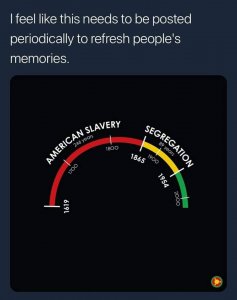I used the modifier "mostly" because humans tend to be tentative and suspicious about all strangers, regardless of whether their physical traits are familiar. Further , it seems reasonable that the incredibly rare person whose entire exposure has been to people of their own race, language, body type, height range, hair color, or eye color, might notice and perhaps reject, feel uncomfortable or be intrigued by someone whose appearance is different.
On the other hand, since virtually every American alive today has had plenty of exposure to people of different races, whether by direct contact or through the media, I believe this professor's statement is his/her BS cover story for bigotry, hatred and resentment that is taught, not instinctive.



